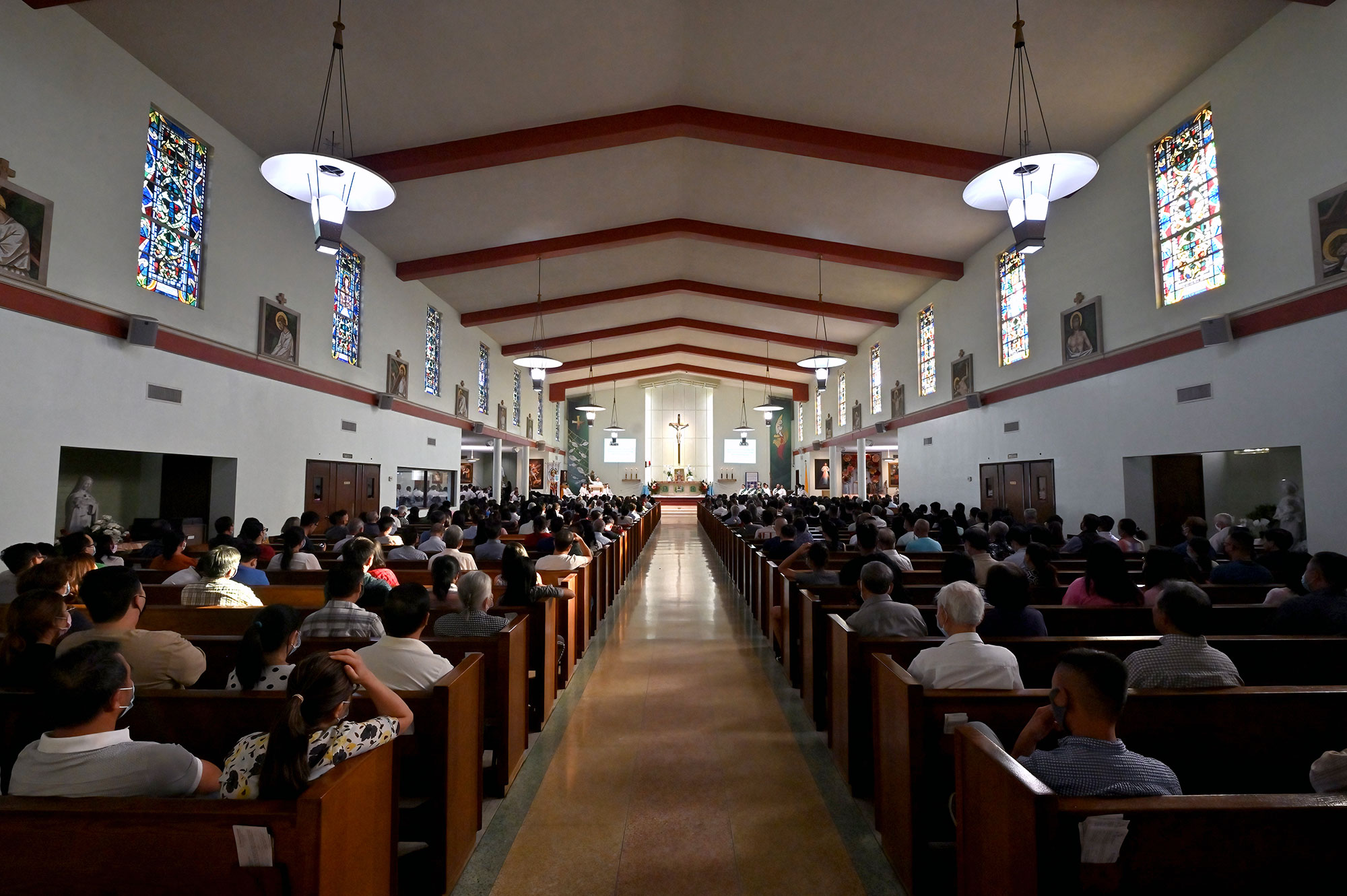Dear Parishioners of Saint Polycarp,
I warmly greet you in the Lord Jesus. We are in the middle of the month of October, a month in which we devote ourselves to Our Blessed Mother who always leads us to Her Son. Last Friday, we had a big turnout for the annual Marian celebration. With my brother priests, I thank each one of you for your generous support. The Marian carriages were beautifully decorated. The music, the prayers at the procession and at Mass, the 48 hours of Adoration were exceedingly marvelous. I just hope that such moments continue to linger in our hearts. I thank especially our young people—the liturgical dancers, altar servers, DMA/LOL/Eucharistic Youth: Your presence and participation added an extra flavor and dimension to the spiritual life of Saint Polycarp. To you the future of Saint Polycarp belongs.
This weekend, the First Reading from Isaiah and the Gospel from Luke describe to us a beautiful image of a “wedding feast”. The wedding feast, which was foretold by Isaiah, brings joy to the hearts of many people. There at the feast, God will provide best wines, rich food, and juicy fruits to the participants or attendees. This wedding feast is about our future with God in heaven, where God will provide the best of the best for us for being faithful to Him. In the Gospel, the narrative of the parable of the wedding banquet outlines “the plan that God envisaged for humanity. The king who gave a marriage feast for his son is the image of the Father who prepared for the entire human family a wonderful celebration of love and communion around his only begotten son. Twice the king sends his servants to call the invited guests, but they refuse; they do not want to go to the feast because they have other things to think about: fields and business” (Pope Francis’ Angelus of 11 October 2020).
The Gospel parable on the wedding banquet offers us a radical twist to the storyline. God, who is represented in the person of the king, does not want an empty banquet hall. Despite the refusal of the invited guests, he ventures out and extends his invitation to others in the thoroughfares. “This is how God reacts: when he is rejected, rather than giving up, he starts over and asks that all those found at the thoroughfares be called, excluding no one. No one is excluded from the house of God” (l, cit). Even sinners and the marginalized in society are invited, but these must wear the proper wedding attire provided by the king. The wedding attire or vestment is a condition for attending the wedding banquet. The last part of the parable describes a man, who entered the banquet without a proper wedding vestment and was kicked out. Pope Francis explains that the man who was kicked out of the banquet thought that “he was a self-sufficient person; he had no desire to change or to allow the Lord to change him… The garment provided is the garment of mercy and of grace” (l, cit). God is a merciful God. His love and forgiveness are extended always to us. I pray that the clergy at Saint Polycarp continue to offer God’s wedding garment to those seeking God. I pray that our newly ordained deacon Juan Ochoa will take this Gospel message to heart as he begins a new role in the Church, serving not only to one group of people, not only to the ones he loves, but to all. I pray also for each one of you, that as you approach God’s wedding banquet, you accept graciously God’s garment of mercy to change.
Lastly, October is also a month in which I as Pastor provide you the annual financial summary. This summary reflects the extension of your garment of love to the family of Saint Polycarp. Your generous support has lifted the spirit and the financial stability of this beautiful family. With deepest gratitude, my parochial vicars and I thank you for your love.
May we continue to move forward with joy, gratitude, and holiness in Jesus, Mary, Joseph, and our Patron Saint Polycarp.
Father Viet Peter Ho
Pastor

